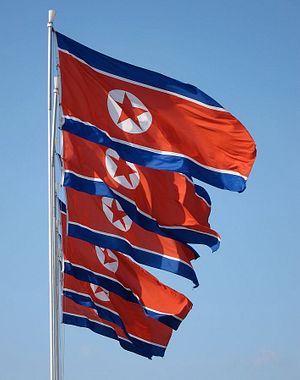Confusion continues to surround the rumored defection of high-ranking North Korean officials from Beijing. Originally, the JoongAng Ilbo reported that two high-ranking officials had defected with their families in September. JoongAng’s source alleged that the officials and their family members were trying to reach Japan, but Yonhap’s source presents a conflicting picture – that there was a high-ranking defector, but that the defector and his family were not seeking to defect to Japan. Japan’s foreign ministry told Yonhap that no North Korean was in contact with Japan’s embassy in Beijing about seeking asylum, and South Korea’s unification ministry said there was “nothing to confirm” at this time.
It is surprising that these envoys took the risk, despite the increased scrutiny that overseas North Korean elites have been under since a recent uptick in defections. Thae Yong-ho, North Korea’s deputy ambassador in London, who defected to South Korea with his family last July, became one of the most senior North Koreans to do so.
Around the same time, media reports claim that a North Korean diplomat based in Vladivostok, Russia also defected to an unidentified country. South Korea’s National Intelligence Service has not clarified whether this individual came to South Korea or not. According to The Korea Times, this unidentified individual is “known to be a higher-level official than Kim Chol-song, the third secretary and trade representative of the North Korean mission,” who likewise defected from St. Petersburg in July.
And it’s not just political elites fleeing a sinking ship. Though unconfirmed by the South Korean government, it is widely believed that an 18-year-old math genius also sought asylum from the South Korean consulate in Hong Kong, while in the city for an international math competition. The teenager reportedly has since landed in Seoul.
As such elites are the most well-off within North Korea’s extremely stratified society, it speaks volumes about the desperation tinging the regime.
Speaking directly to the North Korean populace, South Korean President Park Geun-hye encouraged ordinary North Koreans to also defect. On October 1, during a ceremony for Armed Forces Day, Park declared, “Here in the Republic of Korea, we will inform North Koreans of the truth so that we can end the provocations of the North Korea regime and its anti-humanitarian rule, and we will do our best to enable all North Koreans to pursue happiness and to have lives of human dignity. Let them come to the land of freedom.”
This is the first time that Park has personally and publicly urged North Koreans to come to the South. The Hankyoreh has criticized her approach for making inter-Korean relations even more tenuous. The Korea Times pointed out that such a call is also likely to increase tensions with China – the country through which most defectors have to pass through before they can make it to South Korea.
North Korea was, predictably, displeased with Park’s remarks. The Rodong Sinmun characterized Park’s remarks as exposing the South’s hostility and malice toward the North. The hermit kingdom has also tightened security along the border, though this happened in response to typhoons that made defections physically easier rather than in response to Park’s remarks.

































